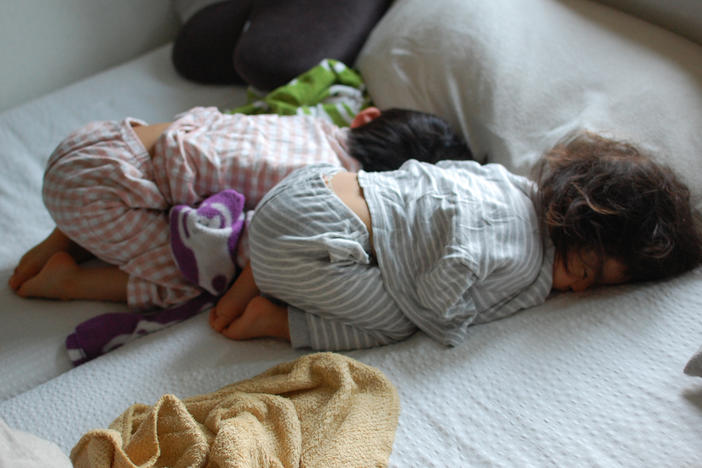Section Branding
Header Content
Relief Money Could More Than Double Support For Child Care Needs In Mississippi
Primary Content
Carol Burnett, who heads an advocacy group for child care centers, says the funds will help mothers enormously — "whether they're trying to get out of poverty" or "find a pathway to higher income."
Transcript
LULU GARCIA-NAVARRO, HOST:
We begin this hour with a look at how money in the new stimulus law will impact sectors struggling during this pandemic. And if there is one thing this past year has shown us, it's how broken our child care system is. Now a huge boost is on the way. Almost $25 billion is going to help child care providers in centers, and $15 billion will go towards helping families get access to child care. It's one of the largest investments in the industry since World War II. Carol Burnett is the executive director of the Mississippi Low-Income Child Care Initiative, and she joins me now to talk about what this money will mean.
Welcome to the program.
CAROL BURNETT: Hello.
GARCIA-NAVARRO: So what can you accomplish with this relief money?
BURNETT: This relief money is amazingly exciting. It includes enough money for Mississippi to go from serving about 28% of the kids that qualify for help to 80% of kids who qualify for help. And these are children who live in families headed by single moms who are working but earning low wages and who have to have help paying for child care in order to afford it.
GARCIA-NAVARRO: I mean, that's an astonishing jump. We should say that these are places that are often run by women and, as you mentioned, serve mostly single mothers. What has the effect of the pandemic been on child care centers?
BURNETT: It's just been a really hard year for child care centers. At first, during the shutdown, they were all closed. The moms they served - many of them were essential workers, even though they were low-wage workers. And so they still needed child care. So centers really had to open as quickly as they could, but they had higher labor costs because they needed to have more staff to have smaller group sizes with children. They had to accomplish social distancing. They had to do more sanitizing. They needed PPE equipment. So their costs were rising. And it has just been a very difficult year for them to keep their heads above water financially.
GARCIA-NAVARRO: And you know, people in the child care industry are also very excited about the expansion of the child tax credit, which rises from a max of 2,000 to as much as 3,600, I believe. And it expands which families will be able to take advantage of it.
BURNETT: Oh, yes. I mean, Mississippi has the highest child poverty rate of any state. We have the highest women's poverty rate of any state. And so the promise that this is going to bring about poverty reduction means a tremendous amount for the very families that we work with.
GARCIA-NAVARRO: Let me ask you - it's a lot of money and a lot of money coming very quickly. Do you think you'll have the capacity to stand up all the things that you'll need to stand up?
BURNETT: Oh, absolutely. The reach of the program is so limited compared with the need. Our organization has a project called Employment Equity for Single Moms, where we offer moms both child care and access to getting into jobs that pay higher wages because we know being stuck in a low-wage job is not a way to achieve economic security. And we have hundreds of moms who have contacted us who need child care assistance. We hear from child care centers that have parents who qualify but can't get on to the program because the funds are not adequate. So we know that with these funds, we'll be able to serve more families who need this assistance and will benefit from it.
GARCIA-NAVARRO: Ms. Burnett, I just want to ask you on a personal level - getting this much help after, you know, working in a state where that help had not been forthcoming - what it means to you and to the people you work with.
BURNETT: Oh, my goodness (laughter). I started the Child Care Initiative 23 years ago. I know for that whole time, the state has only served, you know, 10% of eligible children - the most, 30% of our state's eligible children. And to see the possibility of serving 80% - it's an opportunity that has never come along before. And the moms that we work with, whether they're trying to get out of a domestic violence situation to move to economic security, whether they're trying to get out of poverty, whether they're trying to get out of a job where there is no pathway to higher income above minimum wage, child care is the support service that they most need. And making child care affordable for them - it's a game changer.
GARCIA-NAVARRO: Carol Burnett is the executive director of the Mississippi Low-Income Child Care Initiative. Thank you very much.
BURNETT: You're welcome. Thanks for talking with me today. Transcript provided by NPR, Copyright NPR.
Bottom Content



